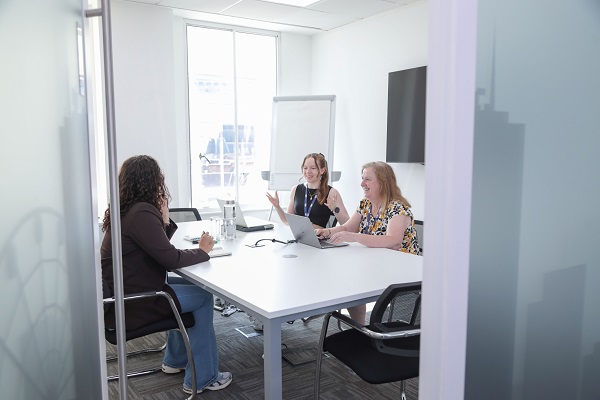In the world of major infrastructure bids, timing is everything – but timing doesn’t just mean hitting the deadline. It also means knowing when to start. And the best time to start listening? Long before the Invitation to Tender arrives.
Too often, stakeholder engagement is treated as an obligation, something to satisfy planning requirements or community liaison protocols. In truth, it’s one of the most strategic tools available to a bid team. If we listen early, stakeholder voices can shape design, surface risk, spark innovation, and steer our positioning – all before a single question has even been written.
Why listening early matters
Modern commissioning bodies are increasingly vocal about their desire for meaningful engagement. Whether it’s Transport Scotland, Scottish Environment Protection Agency, NatureScot, or Local Authorities, there’s a clear expectation that contractors will not only respond to the brief – but reflect the values and needs of the communities they will impact.
- When we listen early, we gain more than just community goodwill. We uncover:
- Local insight: From seasonal tourism patterns to informal land access routes
- Reputational risks: Community concerns which, if unaddressed, can spark opposition
- Opportunities for legacy: Projects or partnerships aligning with local aspirations
- Design efficiencies: Stakeholder-informed tweaks that reduce friction in delivery.
From intelligence to impact
Recently, as part of the work winning support offered to our client, we led an early-stage engagement programme for a trunk road bid which surfaced key themes months before the ITT landed. Mapping stakeholders and holding informal, pre-bid conversations, enabled us to:
- Re-align the proposed construction phasing to reduce disruption during key local events
- Co-design a skills and education plan with local schools, later incorporated into our social value response
- Identify community partners for wellbeing and inclusion initiatives.
These insights directly improved our technical and quality responses, allowed us to propose more bespoke solutions, and gave evaluators confidence in our delivery strategy.
What listening looks like in practice
Early listening does not mean making promises before you’re appointed. Rather, it is about building relationships, understanding context, and being ready to reflect what you hear. That can include:
- Stakeholder mapping by geography, influence, interest
- ‘Soft’ engagement: Attending community forums, speaking with local reps, reviewing public consultations
- Listening logs: Capturing and summarising stakeholder priorities
- Strategic alignment: Identifying where community needs intersect with project outcomes.
A competitive advantage
Early stakeholder intelligence provides a clear edge in the competitive bidding landscape. It enables teams to proactively identify and de-risk potential planning and construction challenges, long before they become barriers. With insights gathered directly from the communities and stakeholders most affected, your bid narrative becomes more grounded, locally relevant, and compelling.
Listening early allows you to tailor your offer in ways your competitors may not. Instead of generic promises, your bid can reflect specific concerns, aspirations, and opportunities already surfaced through engagement. This approach does not just strengthen your Stakeholder or Social Value responses – it enriches your entire strategy. Importantly, it ensures alignment with wider policy priorities, such as decarbonisation, inclusive growth, and long-term legacy. When your engagement approach mirrors the client’s values, it signals a level of readiness and responsiveness that evaluators notice.
At EiB, we embed listening at the heart of strategy, not just storytelling. Because the strongest narratives are backed by evidence. And stakeholder voices, captured early, offer the clearest proof that your bid is built on more than just compliance – it’s built on connection.
Listening is leadership
In a crowded bidding landscape, what makes one response stand out from another? Often, it’s not the polish or the brand, it’s the depth of understanding. When a bid shows it has been informed by real people, real places, and real challenges, it carries a different weight.
Listening is more than consultation. It’s a leadership act. It tells clients, communities, and evaluators that you’re not just ready to build infrastructure – you’re ready to build trust.
And that? That’s where real work winning begins.
Stacey Macdonald is a Senior Bid Consultant at EiB, with a focus on major infrastructure, renewables and energy projects across Scotland. With over 25 years’ experience in project management and bid delivery, Stacey has worked across sectors as varied as defence, aviation, roads, rail, and utilities, leading multi-disciplinary teams to craft compelling, compliant and high-scoring submissions.
Based in the Outer Hebrides, she brings a distinct understanding of stakeholder dynamics in rural, remote and island communities. Stacey has supported successful stakeholder engagement and communication strategies on nationally significant projects such as Scotland’s Railway Aberdeen to Inverness project and the A9 Dualling Programme. She is passionate about using early stakeholder insight to strengthen narrative, de-risk delivery, and embed meaningful community benefits and social value into bids.







